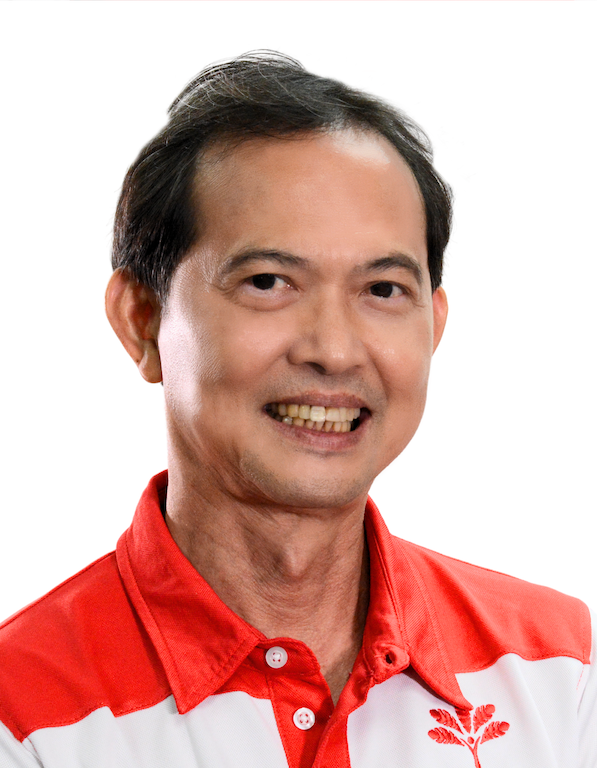Mr Speaker, Sir, I thank the Members Vikram Nair, Member Raj Joshua Thomas, Member Assoc Prof Jamus Lim, Member Lim Biow Chuan and the Minister for their contributions to this debate that I have raised together with my colleague, Ms Hazel Poa. It has allowed us to cover a little bit more ground than in the clarifications after a Ministerial Statement.
I will not rebut individually the points raised by some of the Members, but I would like to condense the thing in two points.
One, we are here today – just now with the Ministerial Statement and now with this Motion – because something has happened. And that something is a very well-meaning speech and policy proposal put up by the Assoc Prof Jamus Lim was just written-off in this House, in a very dismissive manner – although it is just a quiet comment. But nevertheless, it is an indication that we need to remind ourselves what is impartiality of the Speaker. Without that we would not be debating today.
The second point I like to make is, some of the Members who have spoken have talked about our Parliament, that we have an untainted record, track record of the Speaker being impartial, but here is an example that we have to remind ourselves that we need to reaffirm the impartiality of the Speaker.
As a result of that, PSP had decided to put forward this Motion to suggest a gradual process whereby we can enhance the independence and impartiality of the Speaker, that this House remember in May this year, I actually have spoken about the rules and procedures of this House already, in my Adjournment Motion to make Parliament a fairer arena for all.
At that time, I did not take up the issue of the independence and impartiality of the Speaker. But today, the situation is different.
So, the Motion is meant to propose a gradual process. As a result, we brought out the historical examples. And at the same time, we have just proposed that for the time being, Government, please ensure that the Speaker does not belong to the central committee of the ruling party. That is a small step. Of course, as our democracy develops, more and more members from different parties come into Parliament, then we can think of reverting to a situation whereby we have a totally independent Speaker. That is an ideal idea that PSP is trying to put forward with this Motion.
Parliament sits at the apex of our system of democracy. For it to function properly, the Members, processes and proceedings must all work towards promoting an environment where open, substantive and thorough debates can take place.
Well, I do not wish to go too much on Speaker Tan’s case, actually, but just now I think what we have seen is just that there are certain rules that this House has that has just prevented this Motion to be debated in a more open, substantive and thorough debate because of a technical point, that the Motion statement was not done in the way that allows me to have a more thorough debate. I accept that. That is the current Standing Orders of the Singapore Parliament.
In order to promote the debate, as I have said, more debate, I have put up seven recommendations in my Adjournment Motion making Parliament a fairer arena for all, at the May Sitting this year, including bigger research budgets for MPs from alternative parties, more flexible time-keeping during clarifications and debates, and appointing MPs from alternative parties to chair the Public Accounts and Public Petitions Committees. These are all just incremental changes and the Government can actually consider this and allow our Parliament to move closer to a fairer arena for all.
Hence, my Motion is meant to be a first step towards an independent and impartial Speaker and for Parliament to be a fairer arena for all.
The amended Motion on the other hand is re-affirming the status quo and just sticking to what is more of the same. And I have been debating in this House for the last three years that we cannot be just having the status quo. We have to move on. Times have changed; the environment in the world has changed. So, why are we just sticking on to the old rules, in many aspects of our Government?
So, I view the two Motions as one. My Motion as a Motion with a dream, an objective that in the future, we can have a have a better Parliament. So, I hope this House will support my Motion.
Ultimately, the best solution to making our Parliament a fairer arena for all is to have at least one-third or 33% alternative MPs in this House, commensurate with the percentage of votes that alternative parties have already won among Singaporeans.
The PAP Government does not need a super majority of about 90% to govern effectively, but such a super majority prevents the views and opinions of tens of thousands of loyal Singaporeans from being adequately represented in this House.
Mr Speaker, in Chinese, please.
亲爱的新加坡同胞:
今天,我们完成了有关国会议长独立性和公正性动议的辩论。
这是一项很重要的动议,因为国会在我国民主制度中应该是至高无上的,而国会议长的职责是以独立的态度主持国会会议,执行国会的议事规则,确保国会辩论有序进行。
在履行他所有的职责时,议长都必须不偏不倚的对待各党各派的议员。 ,议长在主持国会事务时,必须如同一个明镜高悬的法官,公正严明的执行国会议事规则。
我们应该从最近的事件中汲取深刻的反思,以换取短板的弥补、制度的完善和成长的未来。
当我们从这一事件中反思议长的角色时,我们发现议长的独立性和公正性,同我国独立前相比,可能已悄然发生了变化。自行动党垄断国会以后,议长从一个由无党派独立人士担任的职位,变成一个由行动党高层人物担任的职位。
在 1970 年之前,我国的议长清一色由法官或律师担任。除1963 年至 1964 年 E.W. Barker 巴克先生担任议长的短暂时间外,所有议长也无一例外的是无党派人士。
然而,在 1970 年,人民行动党议员、非律师身份的杨锦成医生当选为议长后,这一历史惯例发生了变化。我也想指出,这与人民行动党于1968 年大选赢得 100%议会席位的时间点完全吻合。
70 年代以后,议长职位一直由人民行动党议员担任。特别是近年来,陈议长及前任议长更是人民行动党中央执行委员,换言之,他们虽身居议长这个政治中立的职位,但也同时处于执政党的权力中心。
从无党派议长到后座议员议长,再到由前部长或执政党中委担任议长,50多年来,这一历史演变过程已使许多国人越来越质疑议长的独立性和公正性。
前进党认为,同时身兼执政党中委的议长的立场是自相矛盾的。为此,我们呼吁,今后,议长职位至少不应该由人民行动党的一个中委担任。我们很高兴看到新议长并不是人民行动党中委。
随着我国民主制度的成熟和反对党议员人数的增加,我们希望在不久的将来,议长一职将像过去一样,由无党派人士来担任。这将是我国民主进程中一个长足而深远的进步,改变人民行动党这五十多年来在任命国会议长的事情上所做的历史倒车。
Mr Speaker, Sir, under your leadership, we look forward to this House being a fairer arena for all.
We have spent much Parliamentary time debating the issues and concerns of Singaporeans. They have arisen from the recent spate of unfortunate events. It is my hope that in the coming months, there will be no more such events and this House can refocus our attention to the more important issues faced by Singaporeans, such as the rising cost of living, price and availability of public housing, economic uncertainty and job insecurity.

